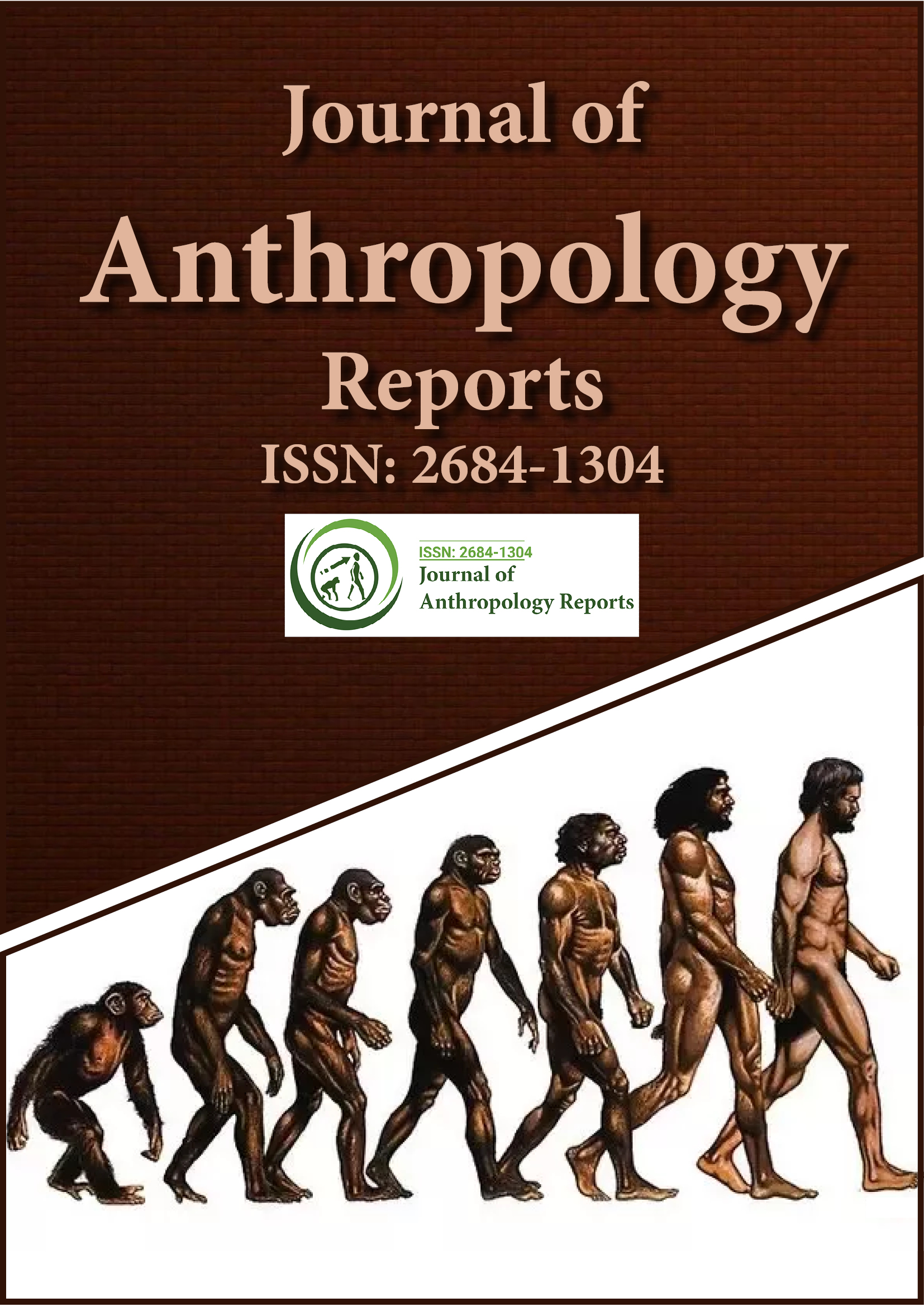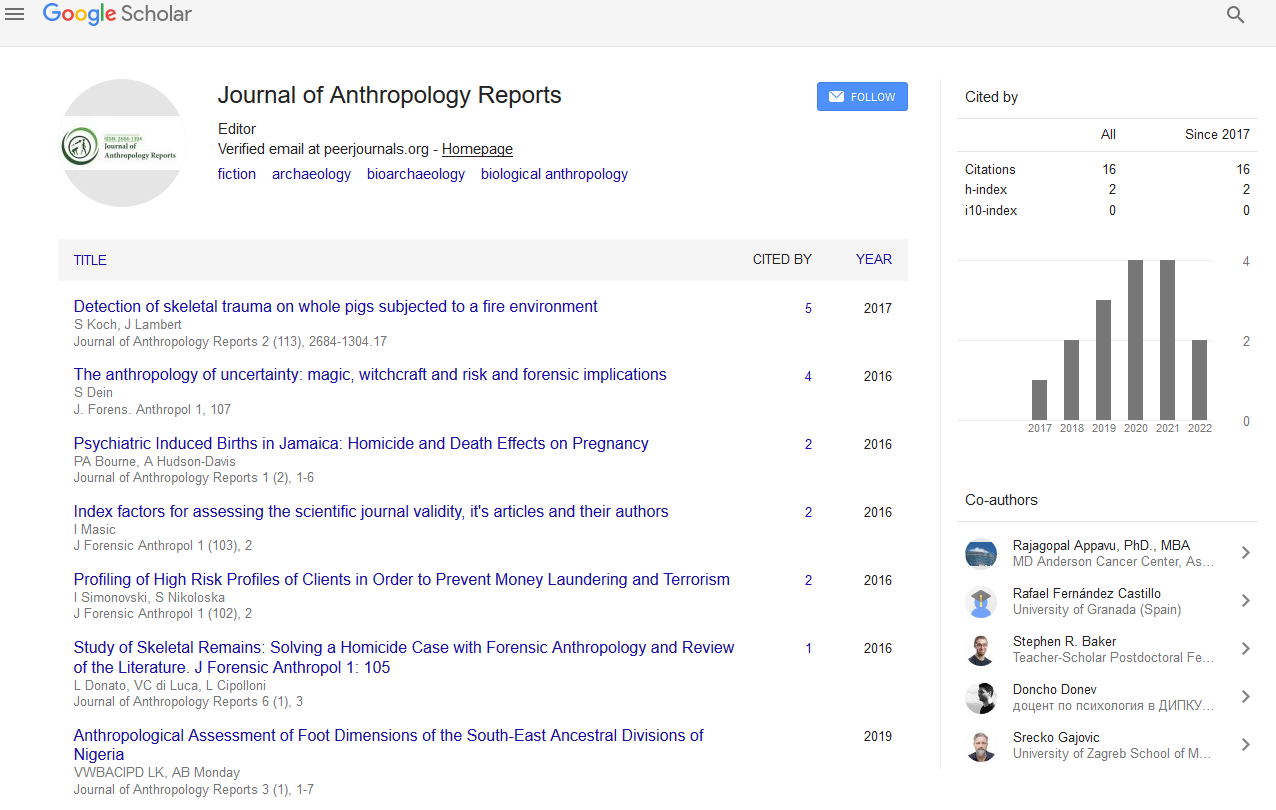Indexed In
- RefSeek
- Hamdard University
- EBSCO A-Z
Useful Links
Share This Page
Journal Flyer

Open Access Journals
- Agri and Aquaculture
- Biochemistry
- Bioinformatics & Systems Biology
- Business & Management
- Chemistry
- Clinical Sciences
- Engineering
- Food & Nutrition
- General Science
- Genetics & Molecular Biology
- Immunology & Microbiology
- Medical Sciences
- Neuroscience & Psychology
- Nursing & Health Care
- Pharmaceutical Sciences
Commentary - (2023) Volume 6, Issue 2
The Influence of Ethnographic Interviews and Observations on Societies
Joseph B. Barry*Received: 12-Jun-2023, Manuscript No. JFA-23-21907; Editor assigned: 14-Jun-2023, Pre QC No. JFA-23-21907 (PQ); Reviewed: 28-Jun-2023, QC No. JFA-23-21907 (QC); Revised: 05-Jul-2023, Manuscript No. JFA-23-21907 (R); Published: 14-Jul-2023, DOI: 10.35248/2684-1304.23.6.157
Description
Ethnography is a subjective technique for gathering information frequently utilized in the social and conduct sciences. Observations and interviews are used to gather data, which are then used to make inferences about how societies and individuals function. Instead of trying to manipulate life in a lab, ethnographers watch life as it happens. Ethnographers frequently find it difficult to outline their projects in a protocol for the Board to review because of the unpredictability of life. Nevertheless, in order for a study to be approved by the Board, a thorough explanation is required.
The Board will be able to approve studies that require some flexibility if they assist them in comprehending the study's parameters, the circumstances in which participants will be contacted and will participate, and the risks involved. Ethnographers are frequently engaged with their members on an extremely personal level and can gather delicate information about them, in this manner vital to perceive regions and circumstances might be dangerous for members and foster systems for diminishing gamble. Ethnographic studies may expose participants to risks of physical, psychological, social, economic, and legal consequences. Planned assent cycle can be a simple method for diminishing gamble in a review. Additional requirements, such as providing a minor with an assent form and obtaining parental consent (though it may be necessary to modify this process so that it is culturally appropriate), may be made in order to facilitate the consent process for participants whose consent is limited (such as children, prisoners, and other vulnerable participants). Because of whom they are and the situation in which they live, some participants may be extremely sensitive to risk, and they may need to make additional accommodations for participants where the risk of harm is high. Even after our interaction is over, a participant's potential for harm often persists; safeguarding the materials they gather will keep on shielding our members from hurt. Loss of secrecy is a gamble that members might confront while taking part in an ethnographic review; Participants may not be interested in keeping their information confidential in all cases, but it is important to communicate clearly with them so that they know what will happen if they share their data with us. Distinguishing the necessities of our members and changing our methodology to oblige those requirements will assist with shielding members from causing damage because of taking part in their study.
Qualitative research on a group of people's behavior and social interactions in their native environment is known as ethnographic research. It includes concentrating on individuals in setting, predominantly mentioning objective facts as opposed to zeroing in on hard information and numbers.
An anthropologist conducting ethnographic research is one who travels to an island, spends years living there, and studies the island's people and culture through continuous observation and participation. In fact, Margaret Mead, perhaps the most wellknown ethnographer in history, did exactly that with her 1928 ethnography Coming of Age in Samoa. Even though they probably won't be going to any remote islands soon, they can learn a lot about conducting an ethnographic study from this, such as the following: Ethnographic research in product design naturally, living with our users for a year probably won't be possible or necessary when it comes to product development. However, the importance of context, foregrounding the point of view of the study's and subjects, detailed documentation of a people and their lives, observation done from within a society, and holistic and qualitative nature are all aspects of ethnographic research. In addition, ethnographic research in user-centered design does not typically follow the same format as anthropological research.
Unlike typical ethnography, they can anticipate that the ethnographic research and will conduct during product development:
• Be shorter and Employ a greater proportion of quantitative data rather than a vast majority of qualitative data.
• Act as a starting point for a more extensive user-centered design project process.
Conclusion
Ethnography remains a powerful tool for understanding human behavior and interactions, regardless of the field of study. Adapting its principles to various contexts enables researchers to gain meaningful insights and contribute to the advancement of knowledge and user-centric design practices.
Citation: Barry JB (2023) The Influence of Ethnographic Interviews and Observations on Societies. J Anthropol Rep. 6:157.
Copyright: © 2023 Barry JB. This is an open-access article distributed under the terms of the Creative Commons Attribution License, which permits unrestricted use, distribution, and reproduction in any medium, provided the original author and source are credited.

